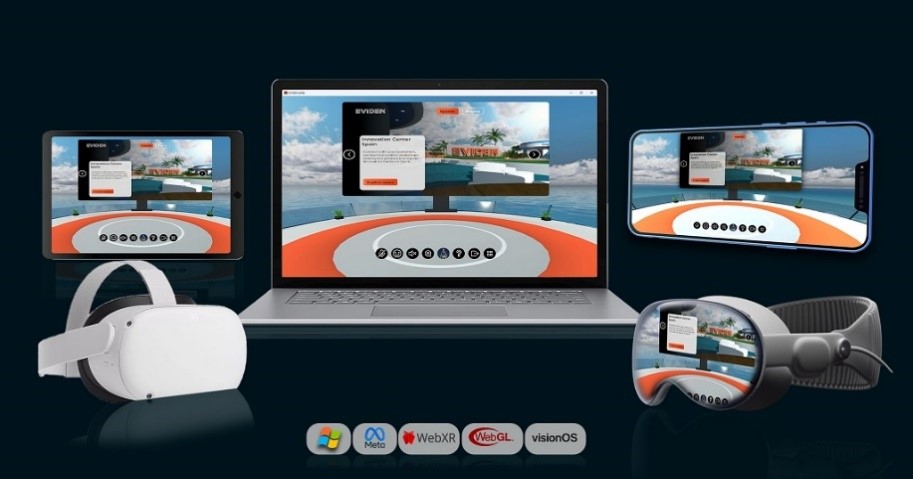Imagine a group of new employees joining your organization and having an induction in a virtual reality campus. With hybrid working and employees joining from various locations, it’s difficult to get people connected and sharing a community spirit.
Closer to home, many existing and new employees cannot visit Eviden’s lush, beautiful campus in Pune, Maharashtra, India. Instead, our virtual campus helped us to recreate a sense of connection and camaraderie for customers and employees. The applications of simulations like a VR campus go far beyond employee onboarding, extending into the realm of industrial optimization and efficiency.
In the manufacturing sector, reducing operations costs and idle time of assets to improve overall equipment effectiveness (OEE) is one of the key KPIs for any manufacturing plant. Well, what if one could design the plant and specific processes, and simulate them virtually before implementing them physically? This would lead to huge cost savings for practical logistics and design rework. Even a running plant can be monitored by connecting a virtual 3D digital twin with real-time data and checking it in near-real 3D visualization.
While in the energy sector, the industrial metaverse can be applied by making a virtual replica of a windfarm and each turbine as an asset. The operations manager can sit at the site office and look at a realistic view of where a certain turbine is, why it’s not working, and how to correct it without really visiting the turbine. This would create a new dimension for managing assets with a virtual windfarm that has real-time data.
The metaverse of the future
The metaverse is now moving out of the hype cycle. This next-generation tech is moving toward implementation, oriented by business value and real-life use cases.
We see three main metaverse sectors at play:
- The consumer metaverse with use cases for social, entertainment and shopping
- The enterprise metaverse, focused on work and collaboration at an organizational level
- The industrial metaverse, where we create digital replicas of real-world assets and build various use-case-driven applications for training and simulation.
Among these sectors, the industrial metaverse is gaining momentum by combining IoT digital twin and generative AI. The enterprise metaverse also has a fair market share, and we anticipate that this will grow with Microsoft Mesh. In addition, GenAI is bringing more intelligence to the metaverse. So the industrial metaverse or its new name, spatial computing, is a key area for exploration.
Expanding possibilities with Eviden’s eXtended Reality Environment
As Eviden’s Global Portfolio Head for Immersive Experience and Metaverse, I have been a part of the research and development behind many cutting-edge solutions and accelerators that expand possibilities for our clients and ourselves.
Our accelerator, the eXtended Reality Environment (eXRe), is a jump-start kit for immersive development.
Our GenAI-backed bot, Evi, is a virtual assistant able to guide you in the virtual space and help you during your training, or even act as a customer care assistant.
Here’s a sneak peek at an innovation space we’ve built using eXRe. It’s accessible on native Windows, native Meta Quest, WebGL, WebXR and Vision OS.

As the metaverse presents endless opportunities for transformation and acceleration, we invite you to be a part of this journey.
- Connect with me to explore the possibilities of the industrial metaverse.
- Learn more about Eviden’s immersive experience and metaverse offerings.
- Take a look at what what eXRe delivers.
Get in touch!